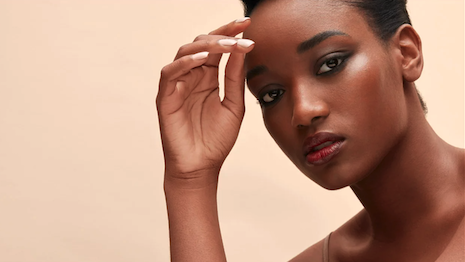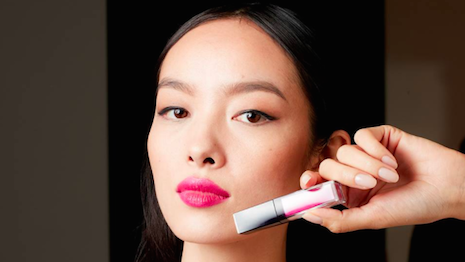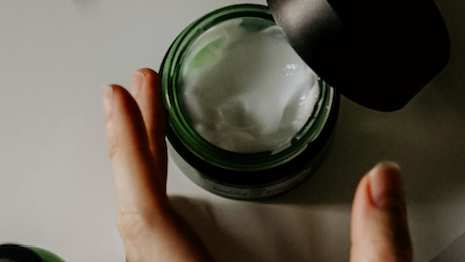 Skincare spending continues to grow. Image credit: Shiseido
Skincare spending continues to grow. Image credit: Shiseido
Interest in skincare has skyrocketed since the start of the COVID-19 pandemic, and it does not seem to be dwindling anytime soon.
According to new data from the Influenster community of ratings and review provider Bazaarvoice, 63 percent of consumers note being more focused on their skincare than they were during “pre-pandemic” times. Brands’ virtual offerings prove to be vastly important, as two in three consumers also report leveraging online quizzes on brand websites to discover the perfect skincare formula or makeup shade.
“I think that the skincare industry will continue to be highly successful indefinitely,” said Keith Nealon, CEO of Bazaarvoice, Austin.
“For many, skincare has become a part of their daily personal hygiene routine as much as taking a shower or brushing their teeth,” he said. “I think that COVID played a big part in the increase of the industry, as many spent the better part of 2020 at home, online, shopping and, apparently, researching skincare.”
The findings are based on the Bazaarvoice and Influenster July 2021 survey of more than 10,000 users in North America.
Loving the skin you are in
Several factors have contributed to the growing interest in skincare and makeup. Consumers have leaned into skincare as a means of self-care during the height of the pandemic, strengthened previous habits or discovered a general affinity for makeup and skincare.
“If a health and beauty brand hasn’t already delved into this space, they should, and fast,” Mr. Nealon said. “Shoppers are looking around and ready to try something new.”
Skincare needs and goals vary as well.
 Eighty percent of respondents said they are interested in makeup looks using color cosmetics, including bright eyeshadows, rosy cheeks and vibrant lips. Image credit: Estée Lauder
Eighty percent of respondents said they are interested in makeup looks using color cosmetics, including bright eyeshadows, rosy cheeks and vibrant lips. Image credit: Estée Lauder
Many consumers desire more education regarding both skincare and cosmetics, leading brands to offer services like skincare quizzes and additional curation services.
Sixty-three percent of respondents said they are now more focused on their skincare compared to “pre-pandemic” times.
Although more time at home may have allowed shoppers to learn more about skincare, experts do not anticipate this is a trend that will cease post-pandemic. Eighty-two percent of respondents said that post-COVID-19, they will continue to purchase brands they discovered during the pandemic.
Fifty-six percent of respondents use only a few targeted products for their skin concerns, with 23 percent using just a moisturizer and cleanser, while 42 percent of respondents prioritize purchasing cosmetics that also offer skincare benefits such as moisturizing lipsticks, hydrating or serum-infused foundations.
Eight in 10 consumers said they are interested in makeup looks using color cosmetics, including bright eyeshadows, rosy cheeks and vibrant lips.
Sixty-seven percent of respondents said they have noticed gender-fluid brands gaining popularity recently, while 58 percent also said they are very likely to purchase from gender-fluid beauty brands and products.
Clean products, ingredients and brand transparency are still in high demand. Sixty-five percent of consumers said it is a priority for them to have brands provide information on product ingredients and benefits.
A social affair
Social media continues to entice consumers in discovering new beauty and healthcare offerings.
Seventy-two percent of consumers report looking on Instagram for inspiration for beauty products, while 50 percent turn to YouTube and 47 rely on TikTok.
 TikTok beauty trends are accelerating consumer interest in specific products and services. Image credit: Stylight
TikTok beauty trends are accelerating consumer interest in specific products and services. Image credit: Stylight
While 2020 was a difficult year for sponsored influencer content budgets, influencer marketing platform Traackr found that TikTok saw a 164 percent increase in sponsored beauty posts and a 481 percent increase in engagement. Online shopping platform Stylight has identified five key beauty trends that are currently buzzing on TikTok and influencing the online beauty sector (see story).
Beauty brands are investing more heavily into social media and influencer marketing than their peers in fashion and luxury, according to a new report.
Launchmetrics’ “Beauty Redefined” ebook notes that there has been a 23 percent drop in print advertising value for beauty labels between 2013 and 2017, with the category putting more focus on digital marketing. As the industry sets its sights on millennials, influencers are playing a significant role in driving awareness and engagement for consumers who prefer to research online (see story).
“It seems like a no-brainer that health and beauty brands need to be utilizing influencers in promoting their products on social media,” Mr. Nealon said.